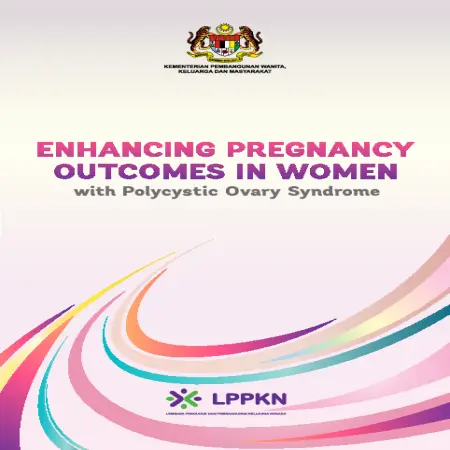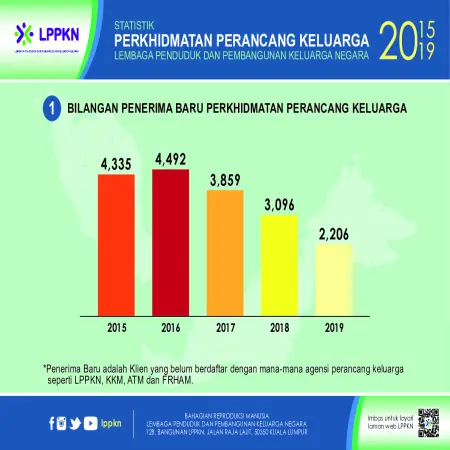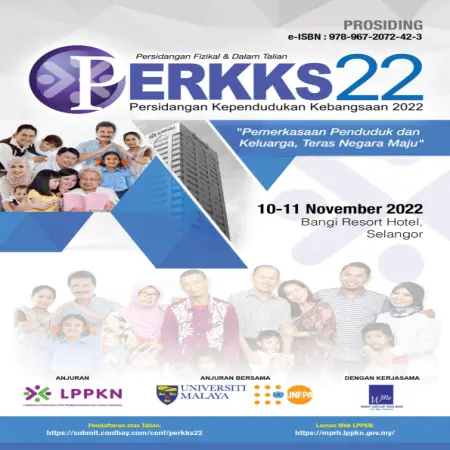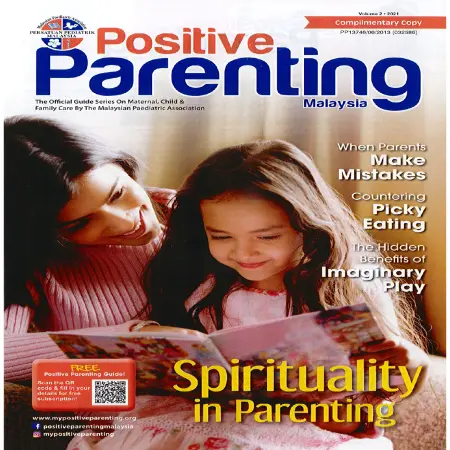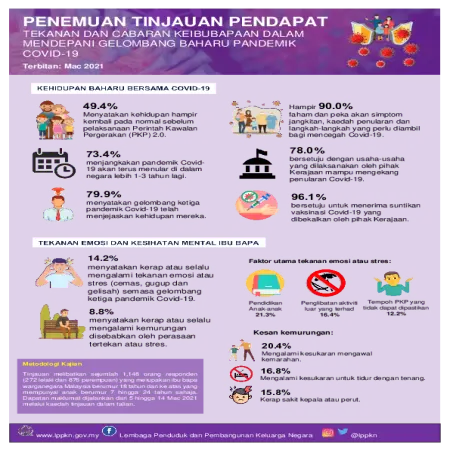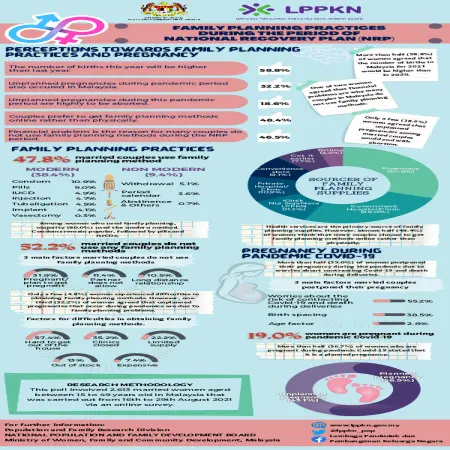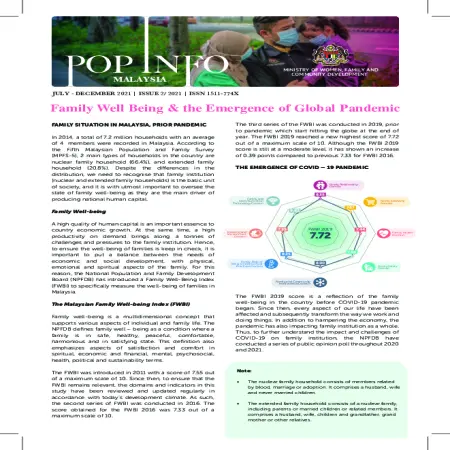Browse by Subject
Results for Search : "600 Technology"
|
|
World Population Day 2023
Item Type: Infographic
Editor:
Year: 00/09/2023
Abstract: The World Population Day 2023 infographic shows Malaysia's Gender Gap Index in conjunction with the theme of the World Population Day 2023 celebration at the national level which is "Unleashing the Power of Gender Equality and Promoting the Rights of Women and Girls" and also an overview of data on women's rights and women's empowerment.
|
|
|
|
|
|
Cepat Tahu, Cepat Tindak
Item Type: Video
Editor:
Year: 00/01/2023
Abstract: Educational video regarding the importance of undergoing a mammogram test which is an examination to detect the early stages of breast cancer while the HPV DNA test is a test to detect the Human Papillomavirus (HPV) that is infected through sexual contact. Cervical cancer is cancer at the base of the uterus caused by HPV.
|
|
|
|
|
|
Enhancing Pregnancy Outcomes in Women with Polycystic Ovary Syndrome
Item Type: Research Report
Editor:
Year: 00/01/2023
Abstract: Polycystic ovary syndrome or known as polycystic ovarian syndrome (PCOS) is an endocrine disorder and one of the main causes of anovulatory infertility in women of reproductive age, which is 15 to 49 years (Balen et al., 2016). The main characteristics of women with PCOS are ovarian dysfunction, hyperandrogenism and polycystic ovaries (Balen and Michelmore., 2002). This syndrome is associated with metabolic syndromes such as obesity, insulin resistance, diabetes mellitus type 1 (Barthemess and Naz., 2014) and arteriosclerosis (Orio et al., 2004).
The general objective of this study is to identify the demographic characteristics, clinical and medical history, of PCOS sufferers as well as appropriate treatment methods among clients seeking fertility treatment at the LPPKN Subfertility Clinic.
This study is an experimental, case control study involving female clients who come to seek fertility treatment at the LPPKN Subfertility Clinic. The chosen location is LPPKN Headquarters, Kuala Lumpur. Every female client who attends needs to meet the patient selection criteria, namely a Malaysian couple, trying to conceive for more than a year and aged between 25 to 38 years old. Every patient who faces subfertility problem is divided into two groups, namely PCOS and no PCOS.
Patients who are eligible and agree to participate in the study have gone through at least five (5) series of appointments with medical officers and nurses. A total of 167 patients participated in this study with an average age of 30 years.
|
|
|
|
|
|
Statistik data perkhidmatan perancang keluarga LPPKN tahun 2015-2019
Item Type: Report
Editor:
Year: 00/00/2022
Abstract: National Population and Family Development Board Malaysia (NPFDB) have prepared a statistic report on family planning services at the NPFDB level according to the number of new recipients, type of contraceptive, state, age group, ethnicity, strata and employment status for 2015 to 2019. This report only consist new recipients, which is new clients who have not registered with any of family planning agency such as NPFDB, Ministry of Health (MOH), Malaysian Armed Forces (ATM) and Federation of Reproductive Health Associations Malaysia (FRHAM). The breakdown of statistic report by type of contraceptive have included implant, injection, condom, pill, intrauterine device and non-modern methods. Meanwhile, the breakdown of family planning data by age have covered the range of 15 years to 49 years. The breakdown of data by ethnicity also have included Malay, Chinese, Indian, other bumiputera and other ethnicities. These statistic data were also have provided by strata (urban and rural), employment status (employed and unemployed) and education breakdown including college/ university, secondary school, primary school and non formal education.
|
|
|
|
|
|
Wanita dan menopos: satu kajian literatur
Item Type: Book Section
Editor:
Year: 00/00/2022
Abstract: The Malaysian Ministry of Health has defined menopause as a situation of menstrual loss that will occur among women aged 45 to 55 years. However, it is undeniable that menopause can also occur before a woman turns 40 due to health factors. Past studies on postmenopause have focused on physical health aspects such as effects on hormones, sleep and medical support given to postmenopausal women.
|
|
|
|
|
|
Development of a high-energy nutrient-dense meal as supplementary functional food for improving problem of stunted and under-nourished children
Item Type: Article
Editor:
Year: 00/12/2021
Abstract: Poverty, obesity and lifestyles are the most associated factors of vitamin D deficiency among urban-living children in Malaysia. Vitamin D is necessary for calcium absorption from food to ensure healthy bones and teeth. Vitamin D deficiency can cause soft and brittle bones disease known as rickets in children and osteomalacia in adults. Based on previous research, lack of nutritional knowledge among parents can contribute to nutrition deficiencies in children. To overcome this issue, nutritional education and awareness campaign among parents are needed. Besides campaign, the development of supplementary functional food which can provide crucial nutrients and energy that can assist in brain and body growth seems beneficial.
|
|
|
|
|
|
Spirituality in parenting
Item Type: Article
Editor:
Year: 01/10/2021
Abstract: The emergence of COVID-19 since last year has cause an unprecendented health crisis across the globe, affecting people physically, mentally, financially and socially. To alleviate the difficulties and stresses in dealing with the pandemic and ensuing lockdowns, multiple approaches have been taken by the governments, institutions and individuals. Spirituality plays a major role in helping some families cope during this extraordinary period. It can serve as an empowering foundation to any collective, the family unit being the most basic example. Indeed, spirituality is an integral component in parenting that should not be overlooked even during normal times.
|
|
|
|
|
|
Penemuan tinjauan pendapat tekanan dan cabaran keibubapaan dalam mendepani gelombang baharu pandemik Covid 19
Item Type: Infographic
Editor:
Year: 00/03/2021
Abstract: This infographic is about of the findings of the Opinion Survey "Stresses and challenges of parenting in the face of the new wave of the Covid-19 pandemic".
|
|
|
|
|
|
Family well being & the emergence of global pandemic
Item Type: Newsletter
Editor:
Year: 00/00/2021
Abstract: National Population and Family Development Board (NPFDB) has introduced a Family Well-Being Index (FWBI) to specifically measure the well-being of families in Malaysia. The third series of the FWBI was conducted in 2019, prior to pandemic which start hitting the globe at the end of year. The FWBI 2019 reached a new highest score of 7.72 out of a maximum scale of 10. Although the FWBI 2019 score is still at a moderate level, it has shown an increase of 0.39 points compared to previous 7.33 for FWBI 2016. The FWBI 2019 score is a reflection of the family well-being in the country before COVID-19 pandemic began. Since then, every aspect of our life have been aff¬ected and subsequently transform the way we work and doing things. In addition to hampering the economy, the pandemic has also impacting family institution as a whole.
|
|
|
|








